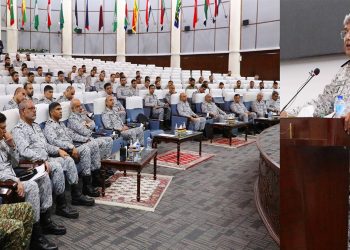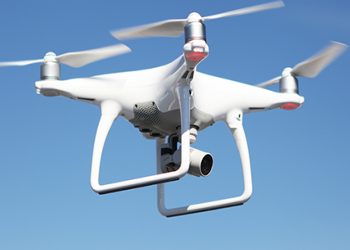Rules of politics tell us the government usually talks with the protesting party in one of two situations. First when the protesting party is gaining steam every day and the other when the protesting party is stuck in a cul-de-sac.
The government invariably talks with the party who has public support. In a typical political scenario, the party that is sitting in power only reaches there because it has won popular votes. After gaining power, if the opposition makes a legitimate demand and the public supports it, it becomes a worrying situation for the government because losing public support ultimately leads to losing power. It should be kept in mind that having the support of the public is not only vital for achieving power, but also for maintaining that power.
Nawaz Sharif’s third government is one of the examples when Imran Khan came to Islamabad with a long march. Khan Sahib and his umpire thought they would topple the government. But since Nawaz Sharif had the public support, that scheme had failed. The question is, what’s the public support? The answer is very simple. The government assesses the percentage of workers and the general public in any protest. If only workers appear in rallies and sit-ins, then this is good news for the government. When members of the general population join the protest, the government becomes concerned. The media itself is the first to note this factor. Common man is the decisive factor in the political spectrum. He’s the one who decides who wins elections. Swing voters usually decide the outcome of elections on the basis of the government’s past performance. When the military establishment saw that Nawaz Sharif had popular support in his third term, they conspired against Nawaz Sharif and threw him out. If Imran Khan had been able to snatch public support from the government in that Long March, Nawaz would have negotiated with him.
When a protest is unsuccessful, the government works with the opposition to help it find a way out of a sticky situation. Political culture includes giving face-saving to the opposition, and by doing so, the government also gets rid of the inconvenience of a protest. Government then makes a negotiation offer, which the opposition spins as a win for its workers even though their leader is aware that the government is really offering him a way out.
Typically, the opposition wants enough to satiate its workers while the government offers them as little as possible. Thus, the protest is stopped once both parties sincerely announce their agreement in front of the media. We all know that Tahir Ul-Qadri, who did politics on Model Town’s dead bodies, was also given face-saving twice. And Tahir Ul-Qadri forgot those corpses to the extent that he did not mention them once during the Imran’s government.
If Imran Khan behaves like a normal political leader, there is no doubt that the government will give him face-saving. But Khan Sahb lives in another world. Not even two thousand people participate in his long march, but he shamelessly claims a crowd of a million people. Half of the seats are empty in his rallies, but he expresses gratitude on Twitter, claiming that the rally was the biggest gathering in the history of Pakistan. His claim that every one of his rallies has been the biggest in the country’s history is interesting. If he had been able to hold merely one of the biggest rallies in Pakistani history, how could he have failed to win any political success over the previous eight months?
Why did he back down from his three big narratives? And above all, why is the government so firm not to give him any face-saving? Is there anything more humiliating than calling his workers on November 26 to congregate in order to topple the government allegedly ruling a span of 27 kilometers but gave up his own two provincial governments? Such provincial governments should be dissolved anyway in which one cannot remove a SHO of Wazir Abad police station. However, the funny thing is that it is almost impossible for him to resign from the provincial assemblies. There are two solid reasons; first, he has been using the borders of both governments as a “refuge” for the past eight months. He is so afraid of getting arrested that he lives in either Peshawar or Lahore instead of Bani Gala. The other reason, quite interesting I must say, occurred to one of my social media followers, Hafiz Ahmad, who has questioned where Khan Sahb will get a helicopter if the provincial governments are dissolved? We all know that it’s not just about flying around in friends’ private or chartered planes, but also Khan is addicted to the official helicopter of the provincial governments. He can’t live without it. So, we can say that until he gets another refuge and helicopter, there is no danger to the provincial assemblies.



























